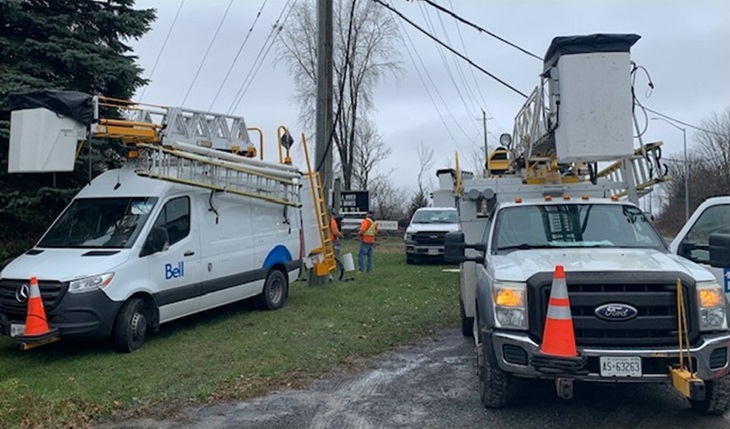
By Ahmad Hathout
The Senate Transport and Communications committee is scheduled to hold hearings starting next week looking into the issue of copper wire theft that has plagued the telecom industry.
Industry Canada, Public Safety Canada, and the Department of Justice are all scheduled to appear on the first day, Tuesday, December 10, while the industry association Canadian Telecommunications Association (CTA), Bell, Telus, and Electricity Canada are scheduled for the day after, according to the committee website.
The study comes after a number of incidents reported by telecoms, specifically telco Bell, in which individuals have cut and stolen the copper wire to sell.
Bell has sued individuals who steal the wire, used to provide service to customers, as well those who buy them as scrap metal. There have been arrests related to these thefts, but Bell has also started to install aerial alarms on its network to combat the theft.
The CTA earlier this year called on the federal government to amend the Criminal Code to include harsher penalties for acts of vandalism or theft of critical telecom network equipment.
The call for increased penalties has also come from a technical working group known as the Canadian Telecommunications Network Resiliency Working Group, which includes the major telecoms, who last year also called for subsidizing certain infrastructure in areas with little coverage and expanding the CRTC’s authority over municipal infrastructure.
Those priorities include more action to reduce network infrastructure damage, according to that report from February 2023. That means introducing a federal law that protects service providers’ “critical and ancillary infrastructure and maximizes criminal penalties in the event of willful or negligent damage to, and/or acts of vandalism or theft of critical network infrastructure” and enhancing measures enforcing existing regulations for utilities or municipalities to notify telecoms about underground work to “minimize any potential damage” to underground telecom facilities. The report notes the U.S. criminal code includes financial penalties, imprisonment, or both for such actions.
Foreign interference Bill C-70, which was enacted into law this summer, expands the scope of “sabotage offence to include certain acts done in relation to essential infrastructures.”
But the CTA has said this isn’t enough.
“While Bill C-70 addresses acts of sabotage that are intended to endanger the safety, security or defence of Canada, it does not address the rapidly increasing frequency of vandalism and theft that are disrupting telecommunications services in communities across the country,” a CTA press release said this spring.
“Whether it is stealing copper wires for resale as scrap metal, or deliberate attempts to damage telecommunications equipment, this rise in incidents of vandalism and theft demands further action,” the CTA release added. “These acts cause major disruptions to affected Canadians and can have a serious impact on public health and safety.”
Photo via Bell of the telco installing aerial alarms



